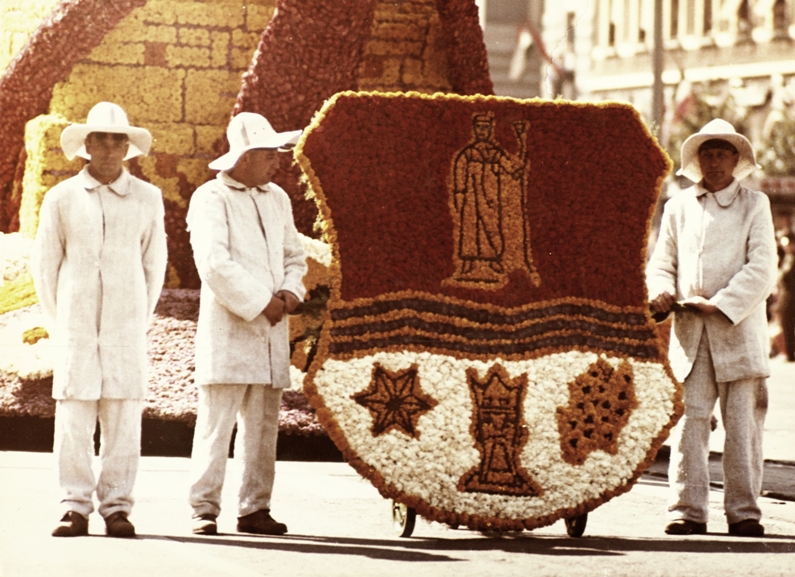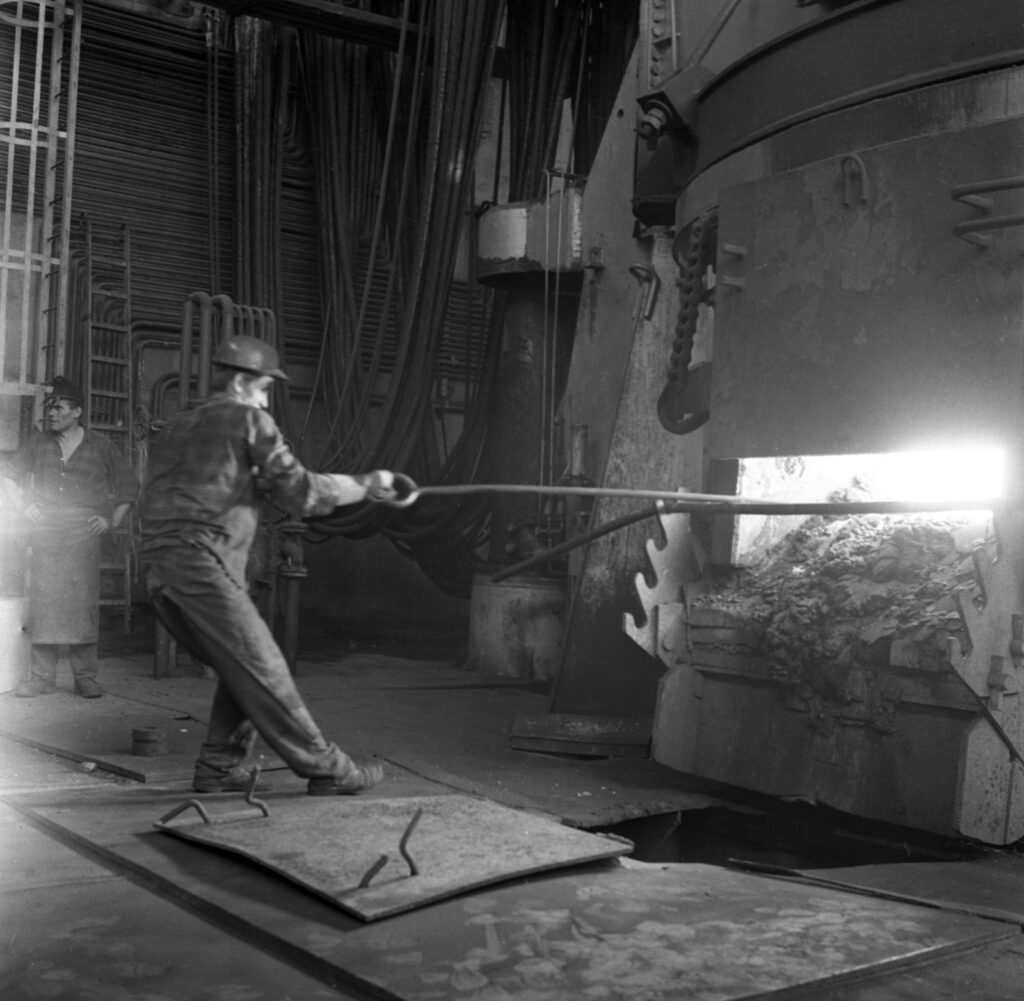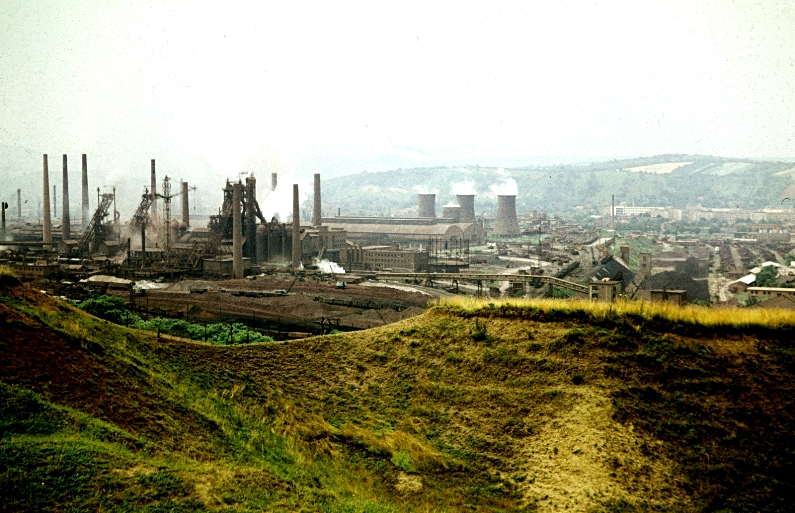The historian Zsuzsanna Borvendég's series was originally published on the PestiSrácok website, but there are certainly those who missed it. But those who haven't read all the parts should also read it again. Knowing the whole picture, can we understand how we got here?
In this series, you have already read many times that large West German conglomerates, beginning in the 1960s, liked to corrupt the heads of Hungarian foreign trade companies and other decision-makers in order to break into the starved and blocked socialist market. Perhaps the most important key person in the cooperation with German companies János Sebestyén , who, among other things, was in contact with the highest managers of Metalimpex: Miklós Gergely and István Dévai . Mentioning the activities of the latter was considered taboo even in 2008, and books were even smashed for violation. In today's episode, we continue this taboo-breaking with a story that was the most serious of the abuses they committed and can be documented today.
Rules that were broken
In socialist relations, foreign trade was considered a state monopoly, that is, when concluding deals, company managers had to adhere strictly to central appropriations, expectations, and regulations. Among these was the fact that in the case of contracts with Western companies, it was not possible to agree on prices in advance for a longer period of time, since fluctuations in the world market price had to be taken into account during the agreements. It was only allowed to undertake annual obligations at a pre-fixed price towards the "brother" socialist states, but this was also not customary at the time when it was necessary to use raw materials whose purchase prices changed frequently and their market supply was unpredictable. However, the theory was often superseded by certain "motivational factors".
Since the production companies were not allowed to enter the markets, the orders came to them through outsourcing companies. Metalimpex represented the metal industry companies, among other things, it distributed the products of Lenin Kohászati Művek, i.e. the Diósgyőr metal works. At the end of the sixties, they said yes to a strange offer.
The well-known West German companies came
In September 1969, Metalimpex signed an export contract with Comex, Transmare and Klöckner, based in West Germany, in which it undertook to deliver 2,796.5 tons of stainless steel alloyed with tungsten to them at the expense of Lenin Metallurgical Works (LKM). All three companies were old business partners of the Dévais, and the investigation later established that Metalimpex had given them unjustified advantages more than once in exchange for corruption money.
Extremely tight delivery deadlines were set for fulfillment, which were secured with serious fines, despite the fact that the agreed quantity was roughly ten times the capacity of LKM. The specialists of the metallurgical works also protested against signing the contract, but Dévai and Gergely remained adamant. The biggest risk did not arise from this, but from the fact that the price of the finished product was determined one year in advance, even though such a contract is usually concluded only one month in advance.
In addition, wolfram was one of the raw materials whose price changed particularly often and to a large extent on the world market, despite this, the price offer fixed in the contract contained discounts and conditions applied to socialist countries: the price of the finished product to be delivered was set in advance for the entire year 1970.
Tungsten was marketed in the largest quantity by China, but in November 1969 an unexpected situation arose. They temporarily did not appear on the international markets with tungsten, which resulted in a legitimate panic: the price of the ore rose tenfold by the beginning of 1970. If, when the contract was concluded, Lenin Metallurgical Works would have had the necessary amount of tungsten available for performance, it would have caused at least HUF 300-400 million national economic damage due to the loss of profit resulting from the price increase alone, but in this case at least the company's loss would remain minimal. However, not even a fraction of the quantity required for production was available to the smelter, so it had to be purchased at increased prices, with unchanged finished product prices.

The carriage of the Lenin Metal Works at the Flower Carnival in Debrecen (Photo: Fortepan.hu,/Gergely Ötvös)
Even the "mobilization reserve" was used
In order to mitigate the expected damage - as much as possible - in advance, they used all available tungsten, even the country's M (mobilization) reserve set aside for military purposes, without the official permission of the Ministry of National Defense. Only high-ranking politicians, high-ranking military officers or party functionaries could access the M-reserve, which means that there really could be great powers behind the deal. But even though the extremely expensive raw material was finally available, the deadlines remained unfulfilled.
In the end, a Czechoslovak company was entrusted with the delivery of the remaining quantity, which, of course, undertook the work at a much higher price than the Hungarian party received from the German customers - in other words, the subcontractor had to be paid from the LKM budget as well. The situation was catastrophic, but it seems that the socialist economy did not even notice such a large loss, as the search for those responsible has not been carried out.
The loss was largely the responsibility of the production company
The contract governing the cooperation between Metalimpex and LKM stated that the two companies would share both excess profits and possible losses in a ratio of seventy-five to twenty-five, of which seventy-five percent belonged to the metallurgical plant. (This is also a sophisticated little agreement, since we know that the managers of the impex companies often concluded unprofitable deals, because they could expect the most significant kickbacks from them, and the greater part of the burden of the loss was passed on to the production company in advance.)
In the present case, the company from Diósgyőr did not give up. Claiming that they warned Metalimpex in good time and even protested due to the terms of the contract to be concluded, they demanded that the foreign trade company take over a larger share of the loss. In the end, they agreed that if both parties try to prevent the case from going to court, Metalimpex will assume half of the loss.
The evidence was destroyed
Avoiding the investigation was probably in the interest of many people, since based on the otherwise extremely incomplete documents and the terseness of the questioned witnesses, it seems that other than the management of the two companies may have been involved in the corruption, however, we cannot find relevant data in the collected investigative files. The main reason for the scarcity of information is that the "III/II. According to the department's verbal communication, the materials related to this have been destroyed in the meantime - on instructions." Unfortunately, there is no indication in the source as to whose orders the evidence was removed. The only surviving document from the period dates from March 1970, i.e. from the beginning of the performance of the contract.
It turns out that the employees of Lenin Metallurgical Works filed a complaint with the competent county investigative body about the transaction, to put it mildly, suspicious, but it seems that the police didn't pay too much attention to uncovering the facts. All that was established was that LKM was at least as responsible for signing the contract as Metalimpex. "Metalimpex - knowing the market sensitivity [of the price] of alloying materials - specifically warned LKM about the possible difficulties in meeting large-scale delivery commitments," and could not have known the unexpected Chinese behavior in advance, and otherwise "a certain risk must be taken into account in every business. " So the case was swept off the detectives' desks, and we'll probably never know at whose behest.

Photo: Fortepan/Tamás Urbán
Their responsibility was only intermediary…
Due to the destroyed contemporary materials, the counter-espionage was in an extremely difficult situation in 1974, when they started the investigation against Dévai and Gergely, since they could not - even with the help of experts - give an approximate estimate of the exact amount of damage caused during the business. The testimonies strongly contradicted each other. Pál Bozsik , who was the economic director of LKM at the time of the corruption deal, firmly stated that the company's loss was only thirty million forints, but other data indicated that it could have been closer to ninety million. Finally, the BM requested the assignment of an expert committee, based on whose work the following conclusion was made: " CEO Gergely Miklós and his deputy, István Dévai, did not directly participate in the creation of the export contracts, they only learned about it after the problems arose, so their responsibility can only be established indirectly."
Since Dévai was in personal contact with the management of the Western companies involved in the case, and even these companies paid personal commissions to the managers of Metalimpex specifically to ensure favorable conditions for them, it is difficult to imagine that their responsibility was only a proxy. It was more likely that they tried to shift the responsibility to a lower level.
József Teleki , one of Metalimpex's department heads, Ms. Miklós Pércsi , one of the department heads, and Péter Tottán , the sales representative of the foreign trade company, were named as scapegoats. However, they did not recruit lower-level managers from the LKM side. Sándor Énekes , the former general manager of LKM, Pál Bozsik , the former economic director, and Imre Szaniszló , chief production engineer, were established
However, the complete truth includes a small but not unimportant circumstance: neither Enekes nor Bozsik were already in their posts at that time. Readers of this series may know the name of Sándor Enekes from the fact that he was the one who, after Péter Vályi, fell into the furnaces in September 1973 in the incomprehensible accident in which the deputy prime minister, somewhat opposed to the foreign lobby, lost his life. In other words, it did not cause any particular loss of prestige for the "big dogs" to sew another unpleasant case on the neck of an already broken and dragged person...
There was no question of prosecution
In 1974, the revealed abuse was no longer suitable for prosecution, since the crime was already time-barred by the time of the investigation. The moral exoneration of the two managers of Metalimpex in the given case obviously indicates that they could have supported their activities from a high place - both party and government lines - all the more so, because the use of the mobilization reserve without permission could have resulted in prosecution in a military court.
In the end, the assigned expert committee assessed LKM's loss at HUF 50,943,065, but this figure only includes the company's specific damage - and that is probably cosmetic. We do not know anything about how much of the share Metalimpex ultimately took over, if only half, we are already at a hundred million deficit, but it is also conceivable that they were willing to pay even more damages in order to smooth over the case as soon as possible.
And we cannot assess the damage resulting from the lost profit either, how much profit the metalwork could have realized if the contract was concluded in accordance with the rules - and with the care of a good farmer.
Source: PestiSrácok
Author: historian Zsuzsanna Borvendég
(Cover photo: Fortepan/Judit N. Kósa )












